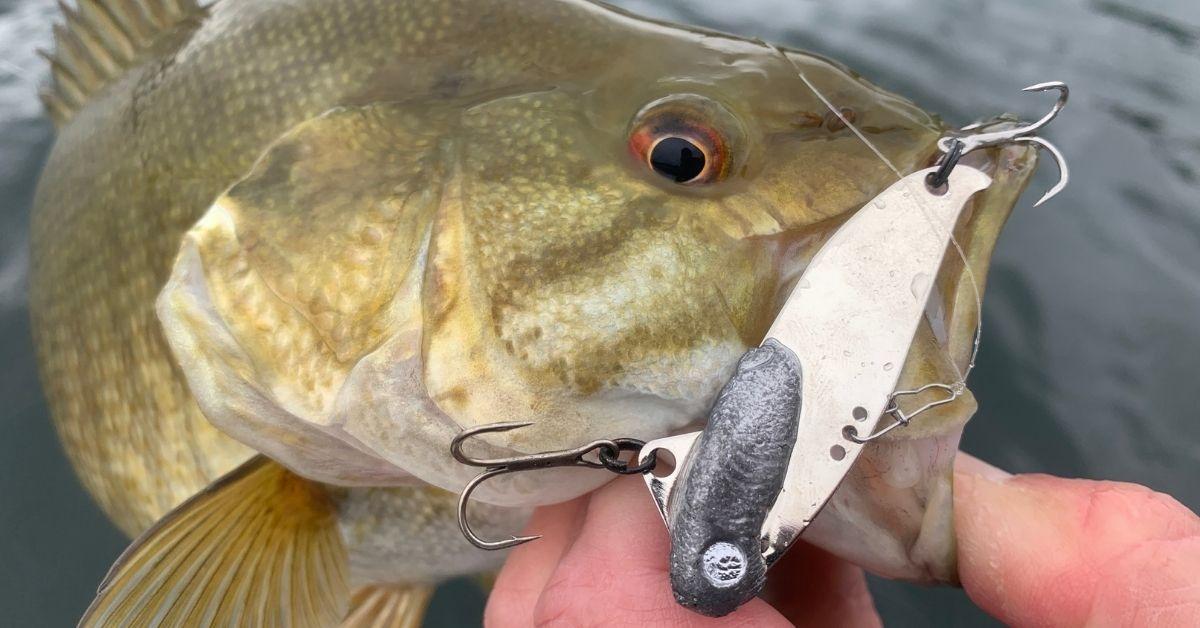5 Cold Water Lures That Will Catch You More Bass
Coldwater bass fishing can result in either feast or famine for many anglers. Bass are going to always bite less often in cool water but it also can be the time of year the big ones seem to be caught! Bass are cold-blooded by nature so their activity levels are directly impacted by climate changes. As water temperature rises the metabolism in coldblooded animals (like bass) will speed up appetite and feeding activity. Fish are moving faster and further in pursuit of food, anything they can do to keep that motor running.
In cooler water, Bass are much slower and tend to feed less. While you're less likely to run into an aggressive bass in cold water, that does not mean you can't catch the big ones! Here are 5 of the top cold water lures to help you increase your chances at a big one while you're freezing your tail off.
1) Jerkbaits
Explore Jerkbaits
The jerkbait is a staple of cold water fishing for smallmouth and largemouth anglers alike. Baitfish will suspend in the water column during cold weather which makes a jerkbait a perfect choice for mimicking the forage bass are keying in on. While fishing slow can be painfully boring for some, make sure to use increased pause length between your jerks in cold water to increase your bite percentage. The neutral buoyancy of a jerkbait puts off a subtle motion when at rest and this can be what triggers a bite.
Target areas like main lake points, shoals, or bluff walls and if you see notice birds diving make sure to give that area a try, they’re likely feeding on the fish you're trying to mimic.
2) Lipless Crankbaits
Explore Lipless Crankbaits
Lipless crankbaits are loud, versatile, easy to fish, and have a tight wobbling action which is perfect for winter bassing. Use it as a tool to cover water and find active fish, it works exceptionally well in or around grass, try ticking the tops of green weeds or ripping it through grass patches. In cooler water make sure to find lively grass. Fish relate to vegetation all year. This is true especially during the winter months when oxygenated water can be hard to find.
Use a slow steady retrieve and once you feel your bait hit grass rip it out hard, this is usually when the bite is triggered. Another good option is the ‘Yo-Yo’ technique which involves raising a bait off the bottom and then slowly letting it fall back down. The fluttering action during the fall resembles a dying baitfish that fish love the feed on!
3) Soft Plastic Grubs & Swimbaits
Slow rolling a grub or small swimbait on a ⅛-¼ oz jig head is extremely versatile during the winter months. Every predatory fish you target is going to eat minnows at some point so providing an offering that resembles the forage they are feeding on just makes sense.
Try matching the hatch to the best of your ability in clear water and if you’re fishing stained water try using bright and vibrant colors for added flair.
The beauty of a grub or swimbait on a jig head is how versatile it is. From shallow flats to deep break lines, you can catch 'em with this simple set-up. Make a long cast and either let your bait fall to the bottom or the desired depth you're targeting and slowly retrieve the swimbait back to you with your rod tip pointed down. You can add intermittent pauses or jerks to trigger bites but a slow and steady retrieve always seems to work.
4) Flat Sided Crankbaits
Flat-sided crankbaits are one of the best cold-water power fishing options. They are sleek, easy to throw, and provide a lowkey wobbling action that is needed during the winter months. Most flat-sided cranks generally come without rattles which follows the 'less is more' approach you often see in cold water angling. Flat-sided cranks give you the ability to move quickly and cover ground while providing a subtle action. are a part of the reason this bait continually outperforms other cranks in cool water. Look for channel swings, turns, and laydowns that hold signs of life and continually fish these areas.
5) Blade Baits
Blade baits are a popular cold-water bait for smallmouth anglers in the great lakes region but it's also a low-key killer for fishing largemouth too. Look for areas where baitfish are concentrating like creek channels, swings, and rock to sand transitions. You can jig a blade bait vertically, cast it out, and slowly retrieve but my favorite method involves quickly jerking the blade bait which causes it to jump up from the bottom and quickly flutter back down.
I make a long cast out and let my bait fall on a slackline to the bottom. Then on a slightly slackline, I quickly jerk my wrist to get the blade bait to jump 2-3 feet off the bottom, after the bait is back on bottom I quickly repeat the process reeling up as I go to keep up with the moving lure. It's important to use a slightly slack line when snapping your blade bait. The snap on a slackline allows the bait to dart and flutter more irregularly upon retrieval which usually entices bites. Bites typically occur while the bait is actually sitting bottom so be alert if you feel added weight while setting up your next jig or snap because it may be the fish you're after!
Updated October 27th, 2021 at 5:56 AM CT


